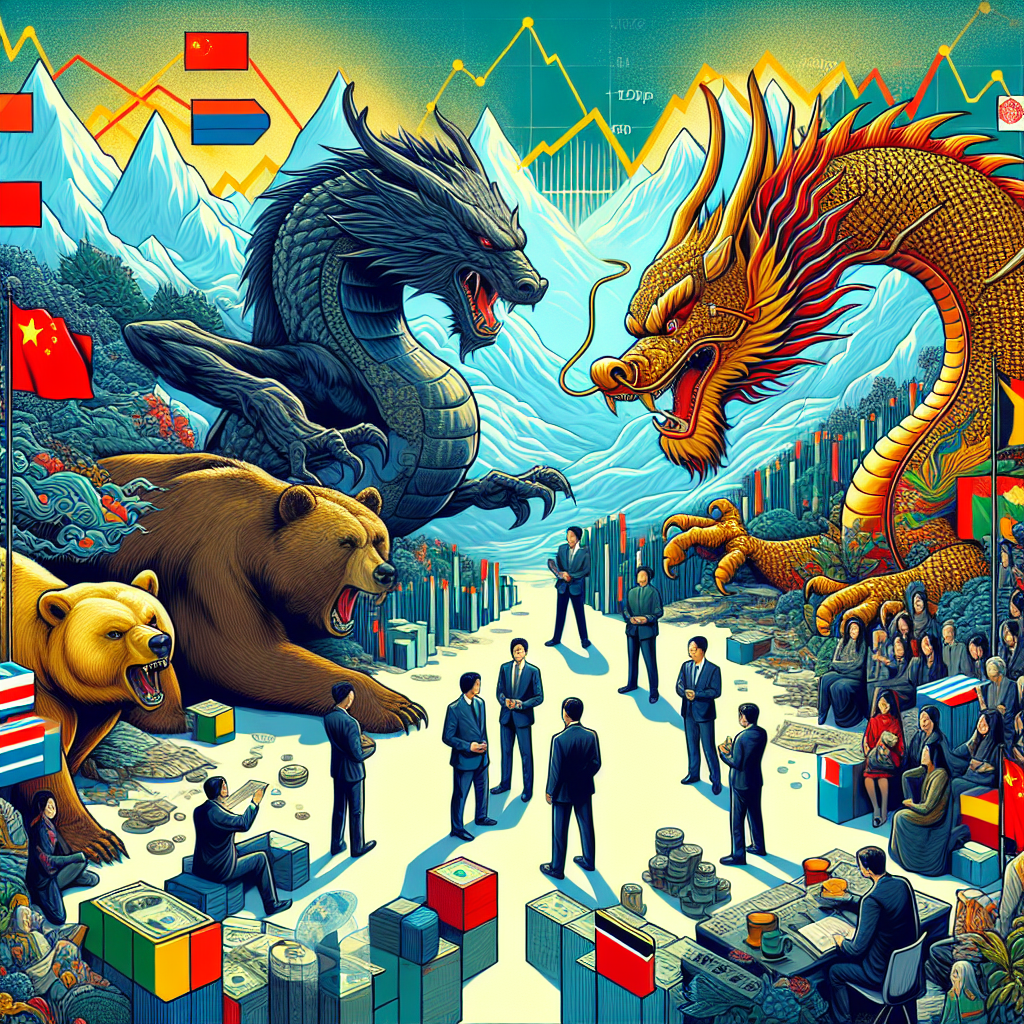Altcoins
Trump’s Strategic Challenge to BRICS: Analyst Predicts Disruption of China-Russia Influence

A political strategist has raised concerns about potential shifts in global power dynamics as former U.S. President Donald Trump sets his sights on the BRICS coalition. According to this expert, Trump’s foreign policy approach may be focused on dismantling or weakening the BRICS alliance, which includes Brazil, Russia, India, China, and South Africa, in a bid to counterbalance the growing influence of China and Russia on the world stage.
During a recent roundtable discussion hosted by the Expert Institute for Social Research (EISR) in Moscow, the analyst elaborated on Trump’s possible strategies. It’s anticipated that his intention is to disrupt the harmony and strategic cooperation among BRICS nations. The forum, attended by international relations experts and political analysts, examined the implications of such a move on global power structures and the international economy.
The BRICS coalition, since its formation, has been seen as a counterweight to Western dominance in global affairs. Comprising some of the world’s largest emerging economies, the group has focused on multidimensional cooperation, from trade and investment to political alignment and development projects. By targeting BRICS, Trump may be aiming to realign global alliances to favor the United States, reducing the influence of major players like China and Russia, who are critical to the coalition’s cohesion.
This strategic focus might be driven by Trump’s broader geopolitical vision, which often prioritizes American supremacy and economic interests. His previous tenure as President was marked by a series of trade wars and diplomatic confrontations with China, alongside a complex relationship with Russia. Both countries, as pivotal members of BRICS, represent significant challengers to U.S. hegemony.
Russia and China have been at the forefront of expanding BRICS’ influence. Their strategic partnerships within the group have bolstered economic and political initiatives, such as the New Development Bank and various infrastructure projects across member states. Disrupting BRICS could potentially undermine these efforts and create opportunities for the U.S. to strengthen its bilateral ties with individual member nations, possibly isolating China and Russia.
The analyst suggests that Trump’s potential return to a leadership role, whether through political office or by influencing Republican foreign policy, could emphasize a more aggressive stance against BRICS. This could manifest in several ways, such as leveraging economic sanctions, forming new trade agreements with individual BRICS countries, or initiating diplomatic efforts to sow discord within the alliance.
Implications of this strategy extend beyond diplomatic circles. The global economy, which is already navigating challenges posed by geopolitical tensions and trade imbalances, could face further volatility. Emerging markets, particularly those heavily reliant on BRICS-led projects, might experience shifts in investment patterns and economic uncertainty.
Furthermore, Trump’s focus on weakening BRICS aligns with his broader narrative of challenging multinational frameworks that he perceives as disadvantageous to U.S. interests. His administration previously withdrew from several international agreements and organizations, emphasizing bilateral over multilateral engagements. A concerted effort to dismantle BRICS could be seen as a continuation of this approach.
However, experts caution that such a strategy is not without risks. Attempting to fracture BRICS might provoke stronger countermeasures from China and Russia, potentially escalating geopolitical tensions. Additionally, other BRICS nations could resist U.S. overtures, valuing their independence and the benefits drawn from their association with the group.
The global community will be watching closely to see how these potential strategies unfold. The dynamics of international alliances are complex and fluid, and any disruption could have far-reaching consequences. As the geopolitical landscape evolves, countries will need to navigate these changes carefully, balancing their national interests with the demands of an interconnected world.
-

 Press Releases2 years ago
Press Releases2 years agoGaming Technologies of the New Time!
-

 Altcoins12 months ago
Altcoins12 months agoBitcoin Declines Below $80K: deVere CEO Nigel Green Remains Bullish on Long-Term Outlook Following Strategic U.S. Bitcoin Reserve Announcement
-

 Altcoins11 months ago
Altcoins11 months agoCalls for Enhanced Discussion on Bitcoin as Brazil’s Reserve Asset: A Move Towards ‘Internet’s Gold’
-

 Bitcoin1 year ago
Bitcoin1 year agoBitcoin Surges Past $64K as SEI and POPCAT Lead Daily Crypto Gains on September 25
-

 Press Releases2 years ago
Press Releases2 years agoEvo Exchange: Redefining the Decentralized Exchange Landscape
-

 Bitcoin7 months ago
Bitcoin7 months agoGrayscale Investments Submits Draft Registration for IPO, Aiming for Public Trading in U.S.
-

 Press Releases1 year ago
Press Releases1 year agoCODE, a Newly Born Project Brings Decentralization Back to the Main Menu
-

 Bitcoin7 months ago
Bitcoin7 months agoPeter Schiff Critiques New Crypto Legislation, Claims Bitcoin (BTC) Gains are Short-Lived




